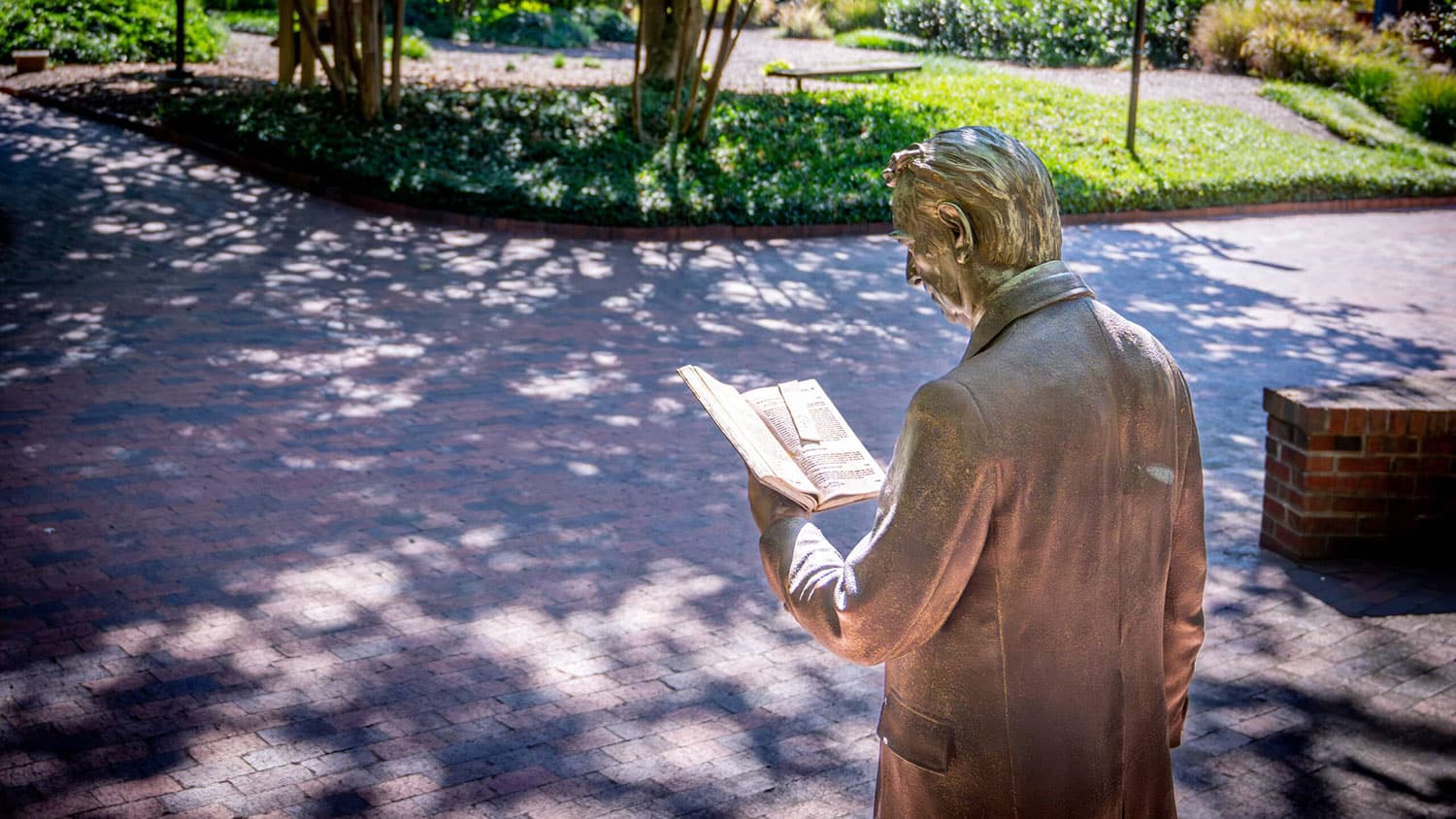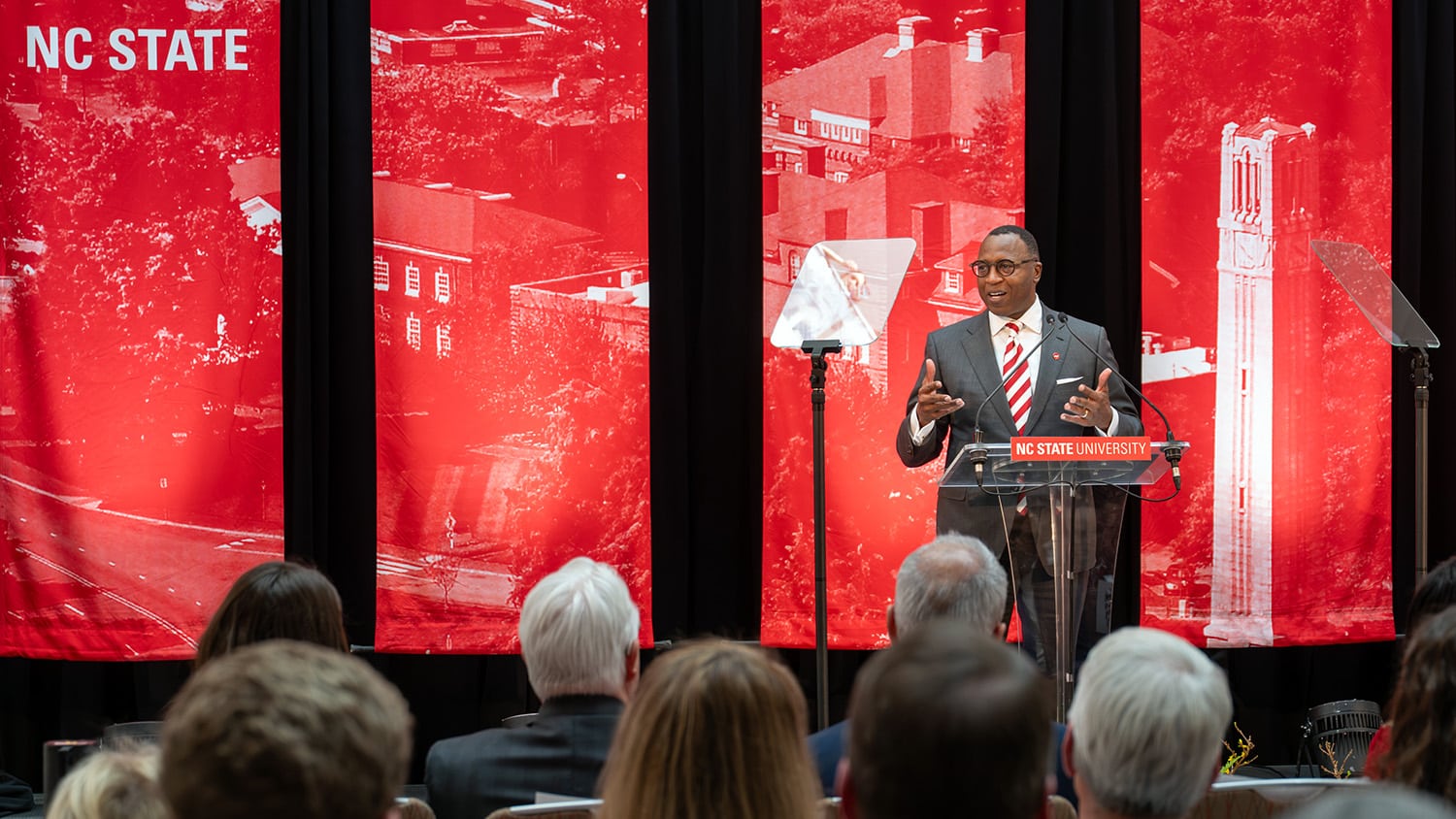Reynolds Named Top Teacher
Dr. Stephen P. Reynolds, Alumni Distinguished Undergraduate Professor of Physics, has been honored with an Award for Excellence in Teaching from the UNC Board of Governors.
One educator from each UNC system campus wins the award, which comes with a prize of $7,500 and a bronze medallion.
The Board of Governors Award for Excellence in Teaching is the most prestigious award given to faculty for teaching excellence and was created in 1994 to underscore the importance of teaching and encourage, recognize and reward outstanding teaching. Nominees for the award must be tenured professors who have spent at least seven years at the nominating institutions and who have “demonstrated excellent or exceptional teaching ability over a sustained period of time.”
A Tradition of Teaching
A third-generation college professor, Reynolds has taught at all levels at the university, from nontechnical physics and astronomy to specialized courses for advanced graduate students. In recent years, he has primarily taught physics majors, and has directed over 30 undergraduate students in research projects.
Reynolds specializes in high-energy astrophysics, and his research into cosmic rays has had a wide influence in the astrophysical community. He joined the NC State faculty in 1985, and was charged with founding a research group in astrophysics. That group, now numbering nine faculty, is known worldwide for expertise in high-energy astrophysics, with a particular focus on supernovae and their remnants. Reynolds was promoted to associate professor in 1990 and to professor in 1995.
Astrophysics to Arts
In addition to being a world-renowned astrophysicist, Reynolds is also an accomplished violinist. As an undergraduate student at Harvard, he served as concertmaster and assistant conductor of the Harvard-Radcliffe Orchestra. In graduate school at the University of California, Berkeley, he performed with the Oakland Symphony and other Bay Area professional orchestras. At NC State, an endowed scholarship has been established in Reynolds’ name to support an outstanding undergraduate student who is pursuing a minor in music with a stringed instrument.
Reynolds received a bachelor’s degree in physics from Harvard in 1971, and M.S. and Ph.D. degrees in physics from the University of California, Berkeley in 1973 and 1980, respectively. He is a fellow of the American Physical Society.
- Categories:


